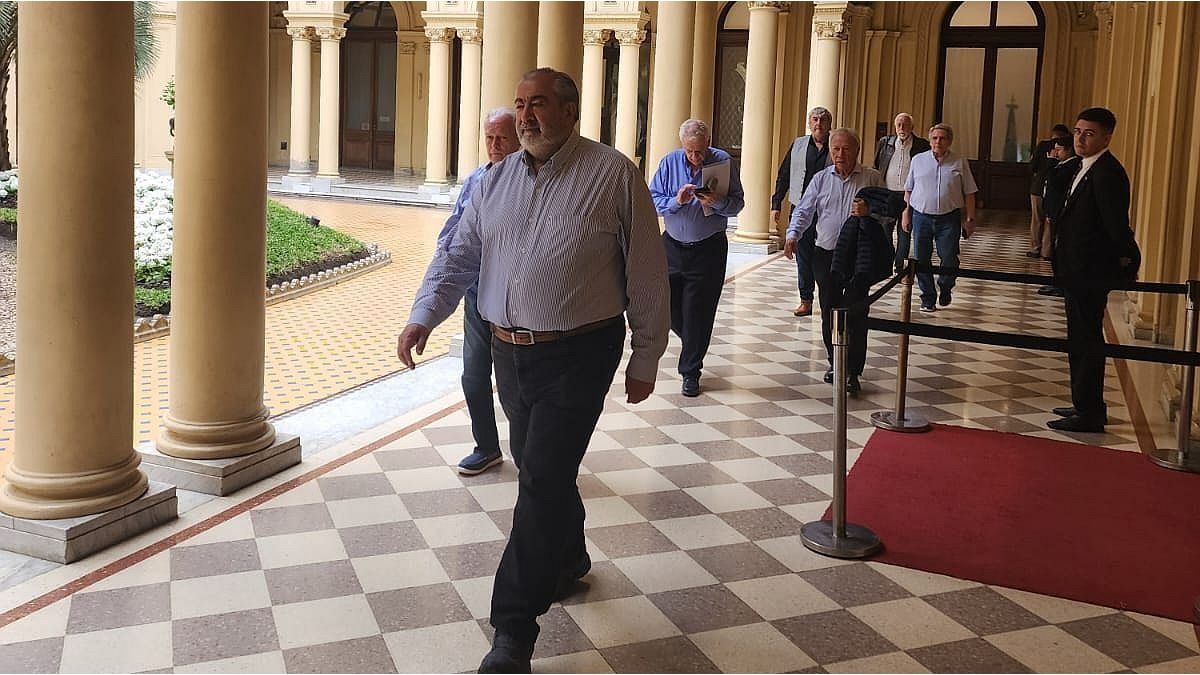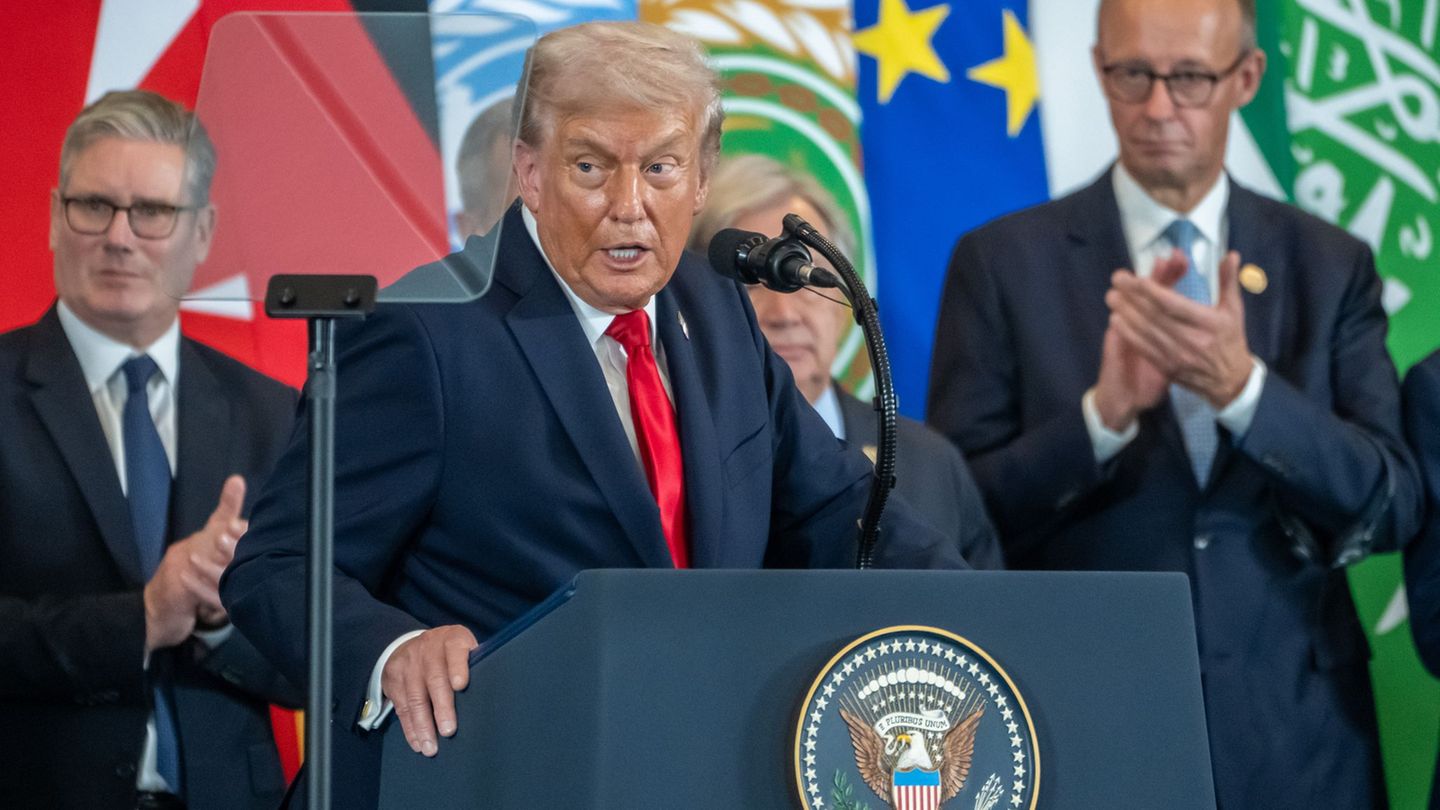The Chief of StaffGuillermo Francosreceived this Monday in Pink House to leaders of the CGT in the middle of university conflict and the recent regulation of “labor chapter” of the law Bases. Minutes before 5 p.m., the union members arrived with the news that they were accompanied by leaders from the UTA and universities.
Franks received the representatives of the worker central at 5 p.m. in his office at Balcarce 50, in a meeting that went to “open agenda”. The first to arrive at the Casa Rosada were Carlos Acuña (service stations) and Héctor Daer (Health)members of the triumvirate that is completed with Pablo Moyano. Also arriving early were Andrés Rodríguez (UPCN), Sergio Romero (teachers), Daniel Ricci (university teachers), Roberto Fernández (UTA), and Jorge Sola (insurance).
About the time, Gerardo Martínez (UOCRA) and the head of the glass union Cristian Jerónimo, the only Moyanista in the conclave, arrived. The only woman at the table, Maia Volcovinsky (judicial), also entered at the end.
In the previous week, the labor union, which called on the unions it brings together to mobilize together with the universities on October 2, had good news when last Tuesday the debate that was going to discuss the modifications to the Law of Union Associations.
These were a series of substantial modifications in the union organization, which did not have the approval of the CGT, such as the elimination of indefinite re-elections for general secretaries, the elimination of the mandatory solidarity fee and the implementation of the clean record for union members. Likewise, the regulation of a five-member body in the leadership of unions with representation of minorities was aimed at and new election schemes for union social work were established.
The project – promoted by the president of the commission Labor Legislation in the Chamber of Deputies, Martín Tetaz (UCR)– Until that moment, it had the support of the Federal Meeting blocks, the Civic Coalition, the PRO and La Libertad Avanza. However, a agreement between the libertarian party and the leadership of the CGT put a brake on the reforms.
The regulation of the labor reform included in the Law of Bases and the conflict over Argentine Airlines In recent weeks, the dialogue between the libertarian administration and the CGT, after months ago the headquarters withdrew from the social table promoted by the ruling party.
The CGT will go to the Casa Rosada to meet with Guillermo Francos
Without the presence of Moyano, who maintains his position of not dialoguing with the government, the triumvirs Hector Daer (Health) and Carlos Acuña (service stations) will command the delegation that will go to the Casa Rosada. They will also be part Andres Rodriguez (UPCN), Gerardo Martinez (UOCRA) and José Luis Lingeri (Health Works), among other important leaders.
The first meeting among the leaders of the CGT and the government took office back in April. The meeting took place in Government House, with the presence of Francos as the main interlocutor. At that time, the official held the role of Minister of the Interior, given that his arrival at the head of the Cabinet took place only in June.
The main union leaders of the CGT participated in that meeting along with Hugo Moyano. The opening of the dialogue did not prevent the labor union from specifying the arrest on May 9, the second since the arrival of Milei to the Executive Branch.
The second meeting It took place on July 16. The entourage of the worker central was called to be part of the social table promoted by the Secretary of Labor, Julio Cordero, to discuss the regulation of the labor reform included in the Bases law. That was the last contact, given that the union gave up attending another hearing due to the Economy’s decision to reimpose the income tax, among other points.
Although there was no new formal meeting, the CGT kept open the dialogue with the Government. And in recent weeks, it tried to incorporate into the regulations of the article “anti-lock” a prior judicial procedure to avoid the dismissal of workers.
Finally, the section in question was not regulatedso its wording remained as stipulated in the Bases law. For a sector of the labor union, this solution was not viewed with bad eyes, because the risk of incorporating a harsher proposal was avoided.
Source: Ambito
I am an author and journalist who has worked in the entertainment industry for over a decade. I currently work as a news editor at a major news website, and my focus is on covering the latest trends in entertainment. I also write occasional pieces for other outlets, and have authored two books about the entertainment industry.




